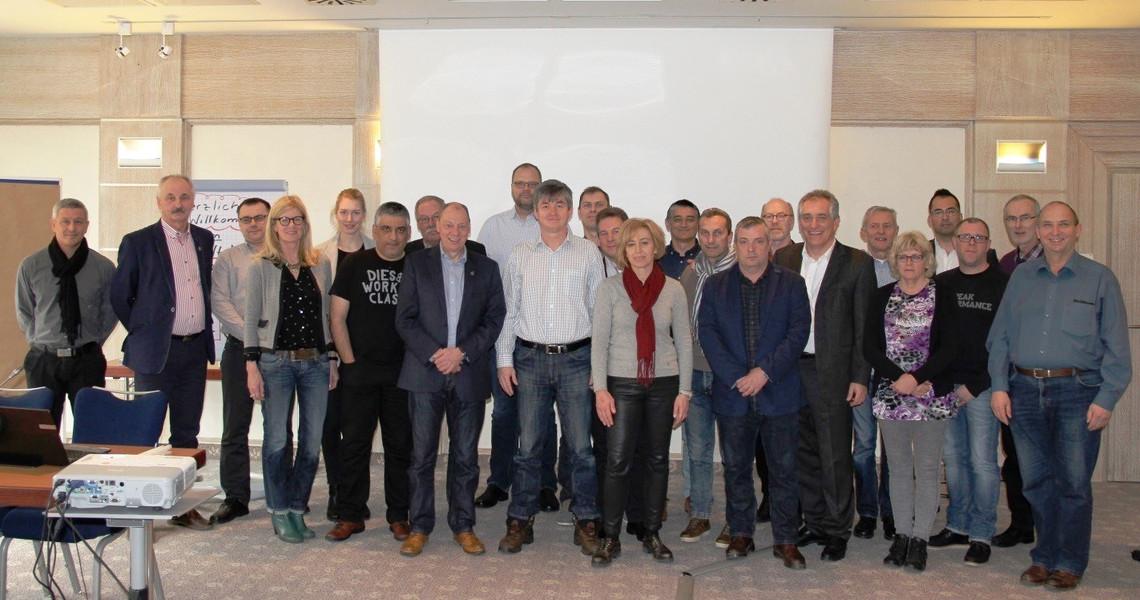In particular, the expected demand for skilled labour in the aerospace sector, in the context of demographic developments, poses a major challenge, which may become a serious barrier to development. In addition, workforces are growing older and their workload has increased in many sectors and to a worrying extent. All of this emphasises the current importance of focusing on planning and quality standards in the workplace.
The challenges created by demographic changes, HR management and the skilled labour shortage – Trade union strategies for the European aerospace sector

Jürgen Kerner, chief treasurer of IG-Metall, discussed the essential role played by the aerospace sector for Europe’s future as a business location and highlighted the challenges created by demographic changes in a working environment that is fast moving into the world of Industry 4.0.
Principle: Without Labour 4.0 there can be no Industry 4.0! And without Training 4.0, there can be no Labour 4.0.
The national partners from DE, UK, SE, FR, PL, ES, RO and IT shared information on the national sector structure and current situation in the aerospace sector, by means of presentations and brief reports. During a plenary session, the participants discussed the different characteristics of the changes, as demographically-based economic and employment developments affect all European countries, whereas country-specific problems and challenges vary greatly.In central and south-east Europe, economic, labour market and educational reforms are necessary, in order to improve labour/social standards and create healthy/attractive working/workplace conditions. But, in north and western Europe, we need to protect jobs, training, youth development and sustainable HR development concepts in response to the growing skilled labour shortage.The participants agreed that, even though the challenges vary, European framework conditions must be promoted for skilled labour and well-trained workers, as part of a balanced age mix. This calls for international guidelines, so that we are not hoodwinked by global relocation and value creation strategies implemented by the major companies.So that everyone call learn from each other as part of the CHANGE project, Frank Bergmann outlined the skilled labour initiative of IG Metall, Holger Junge from Airbus Hamburg discussed the strategic HR planning at Airbus and Brigitte Heinicke from Airbus Bremen talked about the demographic project at Airbus. Our Italian colleague Fabrizio Potetti from the FIOM trade union described preparations for an agreement with Finmeccanica: "Managing the cost of older employees and integrating young people“.These initiatives show that intensive sectoral policy dialogue is underway. By learning from one another, the participants can improve the necessary framework conditions in Europe by acting in solidarity, while influencing the maintenance of standards and change processes for the good of all employees. The CHANGE project provides a further opportunity to increase European solidarity between trade unions and employees.
The next European project meeting will be held in September 2016.



